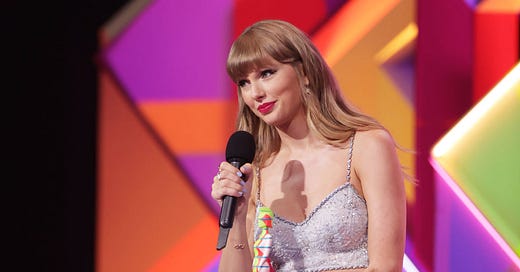Why Taylor Swift's Album Is Secretly A Baseball Card
"Fearless (Taylor's Version)" returned to No. 1 on the charts thanks to an autographed physical edition—and a page borrowed from the sports memorabilia playbook.
Your weekly dose of music, media & money—click here to subscribe fully.
Rummaging through my childhood bedroom the other day, I came upon something that’s either trash or treasure: an autographed Ted Williams baseball card. You can buy the 1992 Upper Deck All-Star Heroes collectible on eBay with no signature for $0.99; mine is probably worth even less si…
Keep reading with a 7-day free trial
Subscribe to ZOGBLOG by Zack O'Malley Greenburg to keep reading this post and get 7 days of free access to the full post archives.





